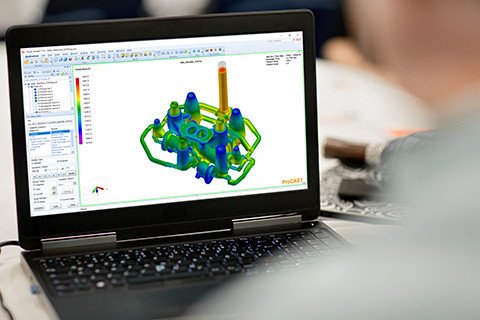Top 10 Research Topics in IT Technology

Information Technology (IT) is an ever-evolving field that continuously shapes industries and influences daily life. With the rapid advancements in technology, researchers and professionals are exploring new areas to push the boundaries of innovation. From artificial intelligence to blockchain, the landscape of IT research is dynamic and transformative. Below, we delve into the top 10 research topics in IT technology, highlighting their significance, challenges, and future prospects.
1. Artificial Intelligence (AI) and Machine Learning (ML)
Artificial Intelligence (AI) and Machine Learning (ML) have revolutionized industries by enabling machines to mimic human intelligence and learn from data.
Key Areas of Research
- Natural Language Processing (NLP): Developing systems that understand and process human language, such as chatbots and translation tools.
- Deep Learning: Building neural networks to solve complex problems like image recognition and predictive analytics.
- Ethics in AI: Addressing concerns like bias, privacy, and decision-making transparency in AI systems.
Future Prospects
AI and ML are expected to advance further, with applications in healthcare, autonomous vehicles, and personalized marketing becoming more prevalent. The ethical and regulatory frameworks surrounding AI will also be a critical area of focus.
2. Cybersecurity and Data Privacy
As technology grows, so do the threats to data security and privacy. Cybersecurity research aims to protect systems from cyberattacks and safeguard sensitive information.
Key Areas of Research
- Quantum Cryptography: Developing encryption methods that leverage quantum computing to ensure secure communication.
- Zero Trust Security Models: Creating systems where every access request is thoroughly verified, minimizing security breaches.
- Data Privacy Regulations: Studying compliance with laws like GDPR and CCPA to ensure user data is handled responsibly.
Future Prospects
The rise of sophisticated cyberattacks necessitates the development of more robust security protocols. AI-driven cybersecurity solutions and privacy-preserving technologies are likely to dominate the field.
3. Blockchain Technology
Initially popularized by cryptocurrencies like Bitcoin, blockchain has evolved into a powerful tool for secure and transparent transactions across various industries.
Key Areas of Research
- Decentralized Finance (DeFi): Exploring financial systems that operate without intermediaries using blockchain.
- Smart Contracts: Automating agreements with self-executing code.
- Interoperability: Enhancing communication between different blockchain platforms.
Future Prospects
Blockchain applications are expanding into healthcare, supply chain management, and even voting systems, making it a critical area for research and development.
4. Quantum Computing
Quantum computing leverages quantum mechanics to solve complex problems much faster than traditional computers.
Key Areas of Research
- Quantum Algorithms: Developing algorithms to solve optimization, simulation, and cryptography problems.
- Error Correction: Addressing the instability and error-prone nature of quantum computing.
- Quantum Supremacy: Achieving capabilities that outperform classical computers in specific tasks.
Future Prospects
Although still in its infancy, quantum computing has the potential to transform fields like drug discovery, material science, and secure communications.
5. Internet of Things (IoT)
The Internet of Things connects physical devices to the internet, enabling them to collect and exchange data.
Key Areas of Research
- Edge Computing: Reducing latency by processing data closer to its source.
- IoT Security: Addressing vulnerabilities in connected devices.
- Energy Efficiency: Developing low-power IoT devices to ensure sustainability.
Future Prospects
With applications in smart homes, healthcare, and agriculture, IoT is set to play a pivotal role in creating interconnected and efficient systems.
6. Cloud Computing and Edge Computing
Cloud computing has revolutionized data storage and processing, while edge computing addresses latency by processing data near its source.
Key Areas of Research
- Hybrid Cloud Models: Combining private and public clouds for better flexibility and security.
- Serverless Architectures: Simplifying backend management by running applications without dedicated servers.
- Data Sovereignty: Ensuring data compliance with regional regulations.
Future Prospects
As businesses adopt multi-cloud strategies, research will focus on interoperability, cost-efficiency, and data management.
7. Augmented Reality (AR) and Virtual Reality (VR)
AR and VR technologies are reshaping industries by creating immersive experiences for users.
Key Areas of Research
- Healthcare Applications: Using AR/VR for medical training, surgery simulations, and mental health therapy.
- Education and Training: Enhancing learning through interactive simulations.
- Metaverse Development: Building virtual worlds for social interaction and commerce.
Future Prospects
With advancements in hardware and software, AR and VR are expected to become integral to gaming, retail, and education.
8. Big Data and Analytics
The ability to analyze and derive insights from massive datasets is crucial in today’s data-driven world.
Key Areas of Research
- Real-Time Analytics: Processing data in real-time for instant decision-making.
- Predictive Analytics: Using historical data to predict future trends and behaviors.
- Data Visualization: Creating intuitive tools to present complex data insights.
Future Prospects
Big Data will continue to empower industries like finance, healthcare, and marketing, driving smarter decision-making.
9. 5G and Next-Generation Networks
The rollout of 5G technology promises faster speeds, lower latency, and enhanced connectivity.
Key Areas of Research
- 6G Development: Exploring the next generation of networks with even faster speeds and broader applications.
- Network Security: Ensuring robust security for connected devices in 5G networks.
- IoT Integration: Enhancing IoT performance with high-speed networks.
Future Prospects
5G and beyond will enable technologies like autonomous vehicles, smart cities, and advanced robotics.
10. Human-Computer Interaction (HCI)
HCI focuses on improving how humans interact with technology to create more intuitive and accessible systems.
Key Areas of Research
- Voice and Gesture Recognition: Developing systems that understand natural human inputs.
- Brain-Computer Interfaces: Exploring direct communication between the brain and devices.
- Accessibility: Designing technology for users with disabilities.
Future Prospects
With the rise of wearable devices and AI assistants, HCI research will continue to prioritize user-centric designs and seamless interactions.
Conclusion
The IT landscape is constantly evolving, driven by groundbreaking research in areas like AI, blockchain, quantum computing, and more. These top 10 research topics not only address current technological challenges but also pave the way for future innovations. By focusing on these areas, researchers and professionals can contribute to shaping a smarter, more connected world.





